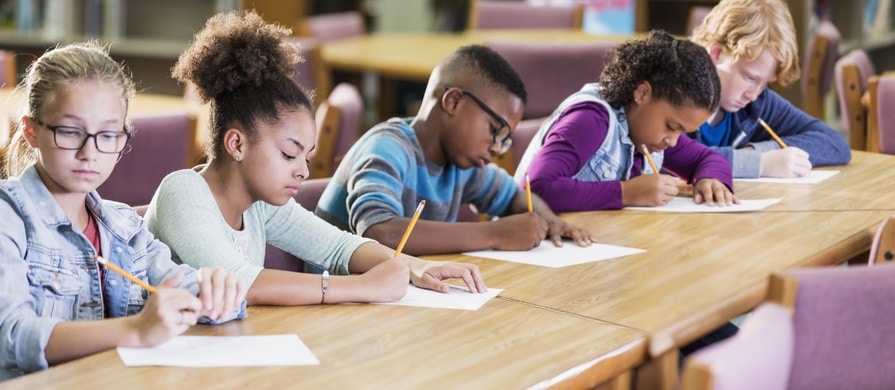
Parents generally want their children to learn well and enjoy learning. There are often also the concerns of school entrance exams, external exam results and the attainment of a good university degree, but the ability to learn is a more fundamental and important consideration. It doesn’t come naturally to every child and parents often want to know how they can help their child learn.
HOW THE BRAIN LEARNS
To help your child learn, it is useful to know what is happening in their brain when they are learning. The Royal Ballet recently produced a mini documentary called Ballet and the Brain, which explored and explained how the brain functions to learn complex choreography and this can also clearly be applied to academic study.
The documentary covered both the neuroscience and psychology behind ballet performance, including the importance of neuroplasticity – the brain’s ability to adapt and change through practice and the environment it is exposed to. This means that the brain develops over time, whether to learn to be an expert dancer, or to develop academic performance.
Extended practice and experience effects change to the brain, and the brain can be adapted through training as well as the body. Knowing this can help us to encourage good study habits, with repetition and practice training the brain so that it develops and learns effectively. It’s no coincidence that we always recommend lots of practice papers to develop automaticity in the run-up to any exams!
The psychological strategy discussed in The Royal Ballet documentary can again be applied to learning in an academic sense: the importance of both motivational and instructional self-talk, using visualisation, controlling irrational thoughts and learning to accept and learn from mistakes. We can help students learn more effectively by helping them get into the ideal positive frame of mind. Encouraging self-reflection helps them to identify what they have learnt from their experience of previous exams, assignments and presentations and how that can be applied to their ongoing work.
STUDY METHODS THAT WORK
It’s quite rare for students to be able to approach their studies with a clear understanding of how their individual brain best absorbs and retains information. Revision skills are rarely taught effectively in schools and part of the problem is that it is such an individual thing. What students need most when acquiring help with their studies, is a sensitivity to how they tick as an individual. Each human brain varies from the next, and yet this obvious point is easily forgotten when trying to help those brains learn.
Another issue is the ubiquitous method of note taking by copying out information to learn by rote. This merely allows regurgitation of facts rather than an understanding and ability to explain the subject. Mistaking recognition with retrieval is where most students go wrong when preparing for exams and, in a nutshell, a student needs to realise that exams do not test you on your knowledge; they test you on your ability to communicate your knowledge. As far as an examiner is concerned, if you think you know it but can’t get it down on paper, you may as well not know it.
A good way to help your child develop this knowledge is to teach them how to note-take in a meaningful way that makes sense to them as an individual. Ask them questions about how they remember things, what has worked in the past and whether they benefit from the use of colour, sound or 3-D representations. They need to work in a way that ensures understanding along every step of the way, building strong mental associations that can’t be easily forgotten. They need to use a method that is not only geared towards absorbing, understanding and memorising, but also trains them in the skill of proving it, by being able to answer questions. Needless to say, we can help you with this.
THE IMPORTANCE OF PRACTICE
Matthew Syed, a top ranked table tennis champion and journalist, has one clear message in his book “Bounce: The Myth of Talent and the Power of Practice”. This is his argument that it’s not innate ability that primarily determines success, but practice, opportunity, a growth mindset and a spark of internal motive.
He doesn’t dismiss the role of genetics entirely, but he argues that it’s just not as important as we believe and that this small shift in perspective could make all the difference in how we approach performance and success. Our expectations of these things have great consequences for those around us and our ability to cope with failure when it happens.
Syed says: “The idea that natural talent determines success and failure is, today, so powerful that it is accepted without demur. It seems indisputable.” But of course, he doesn’t accept this.
Syed points to four main factors in learning:
- Mindset: a “Growth Mindset” gives us a love of learning and a resilience to failure.
- Motive: an “Internal Motive” sustains our drive and motivation.
- Practice: “Purposeful Practice” with enough quantity, quality and feedback, is the foundation of perceived ability and success.
- Opportunity: The element of “Good Luck” that factors in what separates the top 10% from the top 10.
He asserts that these factors – and the key skill of managing belief in order to balance the conflicting demands of learning and performance – mean that your most basic abilities can be developed to extraordinary levels through dedication and hard work. This can be equally applied to sport or to academic achievement.
ASSESSING POTENTIAL
At JK Educate we know from experience that some of what is needed to succeed academically is inherent and some of it is not. Whilst we test students for ability, we also recognise the importance of hard work and practice in progressing a student forward, with parental support being an essential underlying element. But in our experience, hard work alone cannot bring academic success at the highest levels. There must be a baseline level of intelligence, which is measurable, and that’s part of what we do in our academic assessments.
We can use the assessment to see what can be achieved given the right home conditions, teaching input and commitment to hard work. Our assessments also help to guide future school choices. They identify a child’s potential to thrive in different types of school, with their varying pedagogies and attitudes to achievement. Once again, this is where parental involvement and care are required, to ensure that the choices made best suit the individual child and that school ambitions don’t out-strip their abilities.
PARENTAL IMPACT
The idea of limitless potential has always been controversial. It is clear to us however that while studies such as Professor Robert Plomin’s show that genetics appear to have a significant impact on intelligence, parents who maximise environmental factors to support learning in the home also have an important role to play in developing the performance of their children at school.
Our experience tells us that parental involvement is significant in helping children perform to the best of their academic ability. It can really make the difference between under-performance and success, even if much of a child’s learning is self-directed and driven by their own natural curiosity. Parents, other adults and other children can all play an important part in the development of learning, as well as other factors such as books, television and the internet.
The impact of an adult’s involvement in learning on the level at which a child can learn was identified as the Zone of Proximal Development by Russian psychologist Lev Vygotsky. The concept of “communities of learners,” either face-to-face or through electronic media and technologies, is increasingly popular. This reinforces the fact that a child does not learn in isolation, so parents can help them by ensuring that the environment in which they learn is supportive, well-equipped and informed. Parents can really help by having a well set-up place to study at home, showing a genuine interest in their work and facilitating their research through access to information on the internet, in a library or elsewhere.
You know your child best, and you can also help them learn by encouraging a growth mindset and building their resilience so that when mistakes and failures occur, they can learn from them and move on. You can be their support system, their cheerleader, their advisor – and maybe even their task master, when motivation is lacking. As you will now realise, there are myriad ways in which you can help your child to learn!
Further Reading and Viewing:
- The Royal Ballet’s Ballet and the Brain
- Matthew Syed – Bounce: The Myth of Talent and the Power of Practice
- Reviews of Professor Robert Blomin’s new book Blueprint, exploring genetic determination:
https://www.theguardian.com/books/2018/oct/24/blueprint-by-robert-plomin-review
http://www.rationaloptimist.com/blog/the-genes-of-human-behaviour/
- A discussion of Lev Vygotsky’s theories https://www.simplypsychology.org/vygotsky.html
- Abstract of Wright and Huston’s paper on the positive effects of educational television for children (full content behind paywall): https://journals.sagepub.com/doi/abs/10.1177/0002716298557000002

